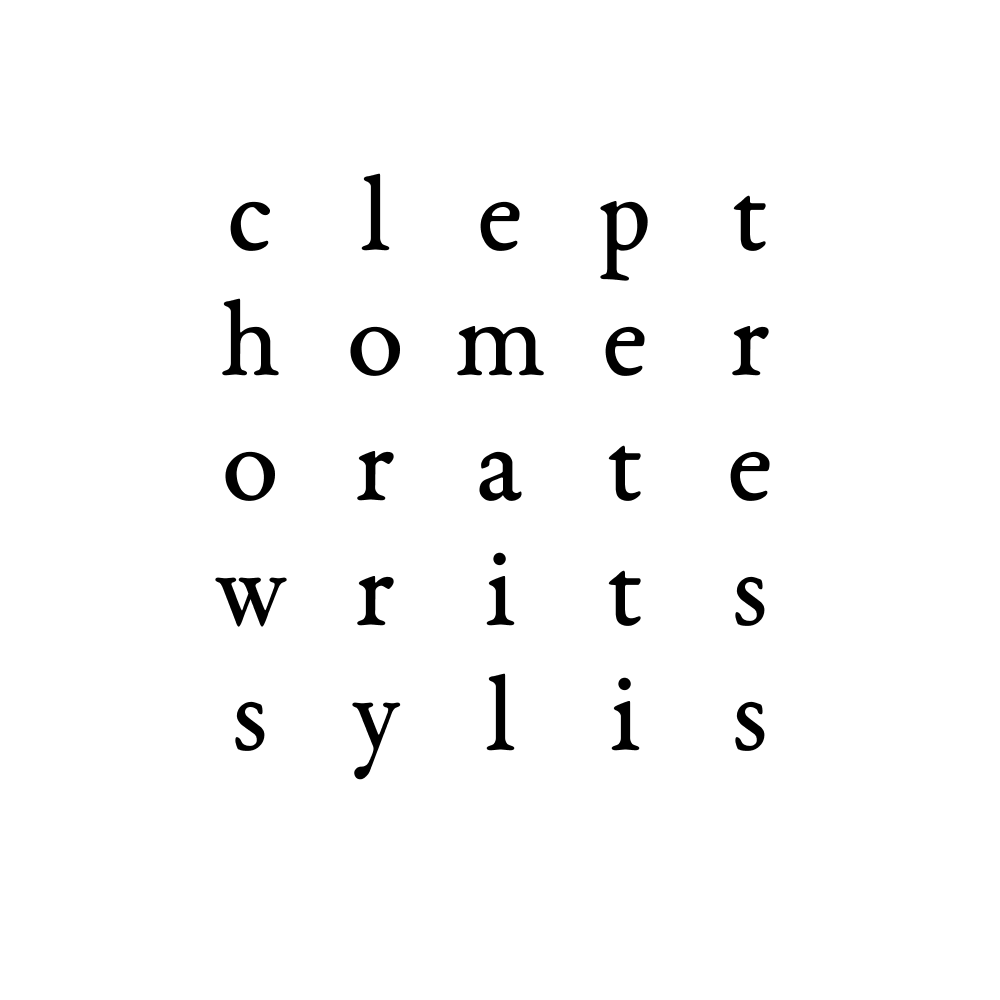Clept homer orate writs sylis

Composed with words from litscape. Including diagonals.
Clept: past pp. of clepe v. “intr. To cry, call; to call on, appeal to (a person), for or after (a thing). Obsolete.”, “trans. To call (a person); to summon, bid come; to invite; to invoke, call to witness; = call v. 13, 14a, to call to witness at sense 6b. Obsolete.”, “With complemental object: To call by the name of, call, name; = call v. 10. Obsolete (except as in 3b), but occasionally used as a literary archaism.” and “ In this sense, the past participle ycleped, yclept /ɪˈklɛpt/, was retained in use (beside the ordinary cleped) down through the Middle English period, was greatly affected in 16th cent., and is still a frequent literary archaism. See also yclept adj.” (OED)
Orate: v. “To deliver an oration; to act the orator; (in mocking or humorous use) to hold forth pompously or at length. Also trans.” (OED)
Writ: n. “A formal writing or paper of any kind; a legal document or instrument.”, “Law. A written command, precept, or formal order issued by a court in the name of the sovereign, state, or other competent legal authority, directing or enjoining the person or persons to whom it is addressed to do or refrain from doing some act specified therein.” (OED)
Sylis: “the monetary unit of Guinea from 1972 to 1986” (Webster)
Chows: pl. of chow n. “slang (chiefly Austral.). A Chinese person. (Derogatory.)”, “Pidgin-English and slang. Food, or a meal, of any kind. Also spec. = chow-chow n. and adj. 1. Also attrib.” (OED)
Petti: petticoat.
Tress: n. “A plait or braid of the hair of the head, usually of a woman.” (OED)